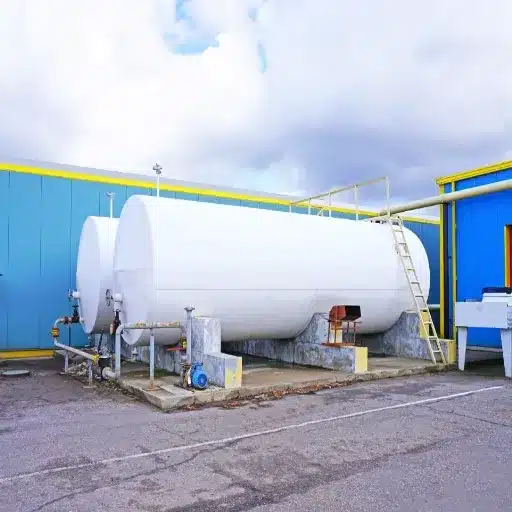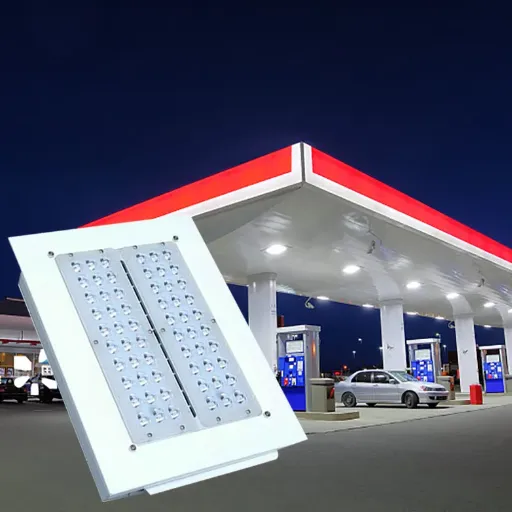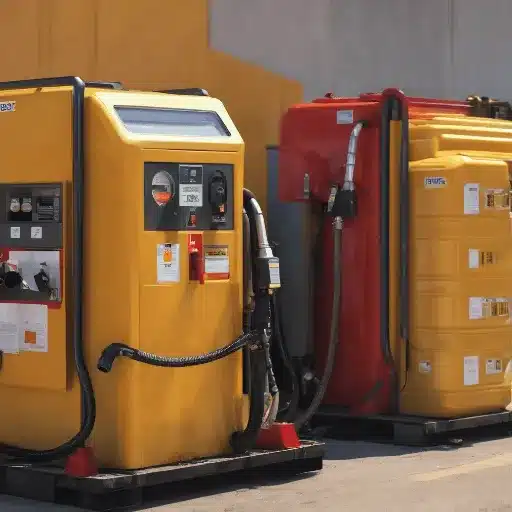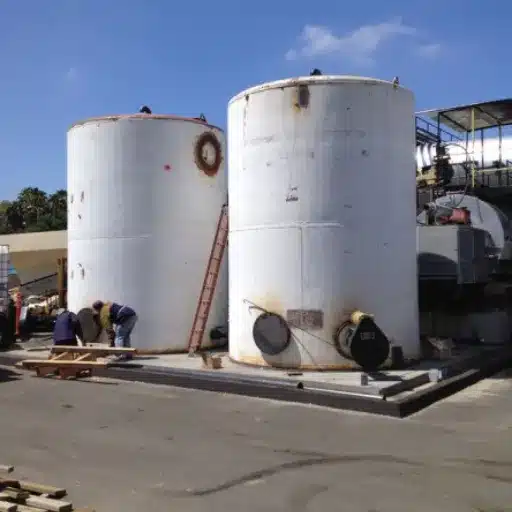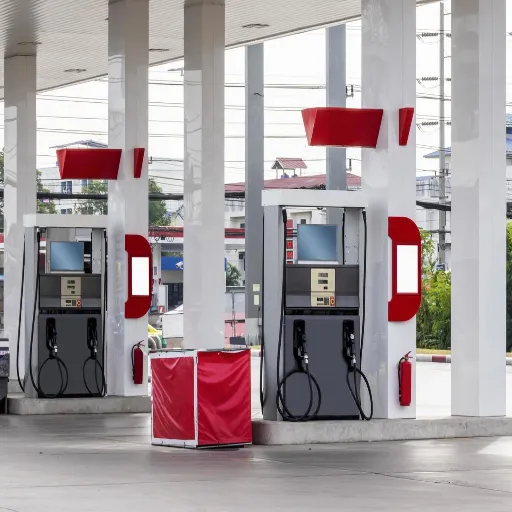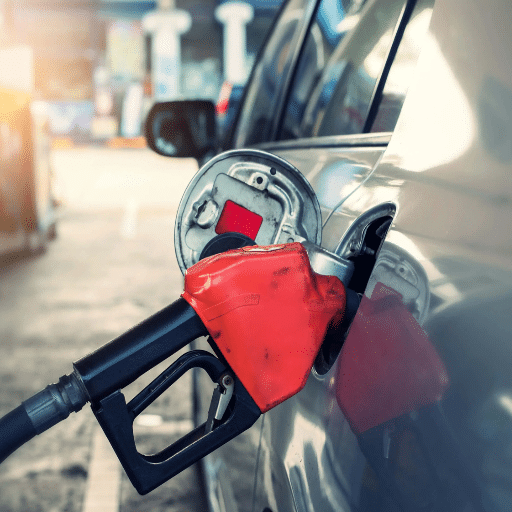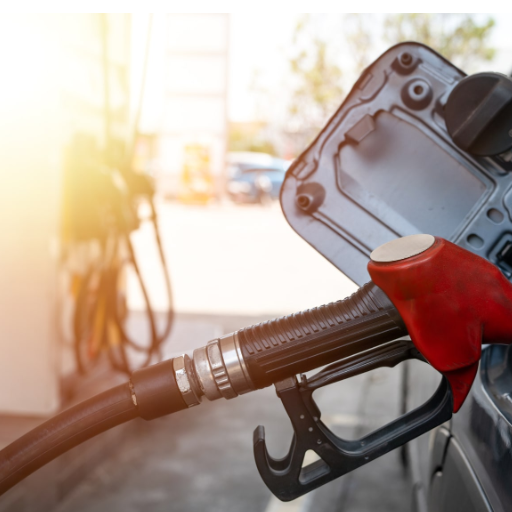Making Smart Investment Decisions for Operational Excellence and Customer Satisfaction
🚀 Transform Your Fuel Station Success
In retail fuel operations, the type of dispensers you choose can make all the difference. These significant pieces of equipment directly impact customer experience, operational efficiency, and profitability. Whether upgrading an existing facility, opening a new one, or attempting to cut costs, understanding retail fuel dispensers is vital for creating an environment conducive to success!
Understanding Fuel Dispensers: The Foundation of Success
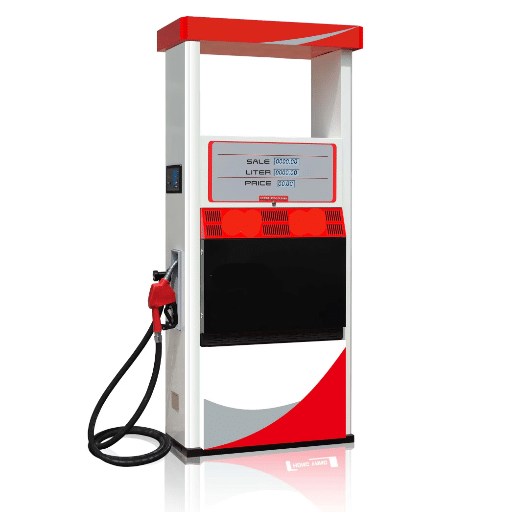
Fuel dispensers form an essential component of any gas station, responsible for the efficient and accurate delivery of fuel to customers. Modern operators must consider critical factors such as reliability, durability, and ease of handling when selecting their fuel dispensing systems.
Modern Advantage: Today’s dispensers feature digital screens for user-friendly interaction, enhanced security measures, and seamless payment system integration. They conform to strict regulations that ensure interoperability and safety standards, enabling station owners to enhance customer satisfaction while maximizing operational efficiency.
What is a Fuel Dispenser?
Fuel dispensers, also known as fuel pumps, are specialized equipment designed to dispense automotive gasoline, diesel, or other liquid fuels into vehicles and containers. These systems are engineered for maximum efficiency while ensuring precise measurement for accurate transactions.
Advanced features in modern dispensers include:
- High-speed fuel flow systems for rapid refueling experiences
- Contactless payment integration for enhanced convenience
- Real-time fuel inventory monitoring for effective stock management
- Environmental safeguards including vapor recovery systems to reduce pollution
- IoT connectivity for predictive maintenance capabilities
- Wear-resistant materials for extended operational life
- Integrated digital marketing screens for additional revenue opportunities
GPM for Passenger Vehicles
GPM for Heavy-Duty Trucks
Major Certifications (UL, ATEX, ISO)
Industry Standards: Modern dispensers meet international safety and environmental standards, including certifications from UL, ATEX, and ISO, ensuring maximum reliability and regulatory compliance for your operations.
Types of Fuel Dispensers: Finding Your Perfect Match
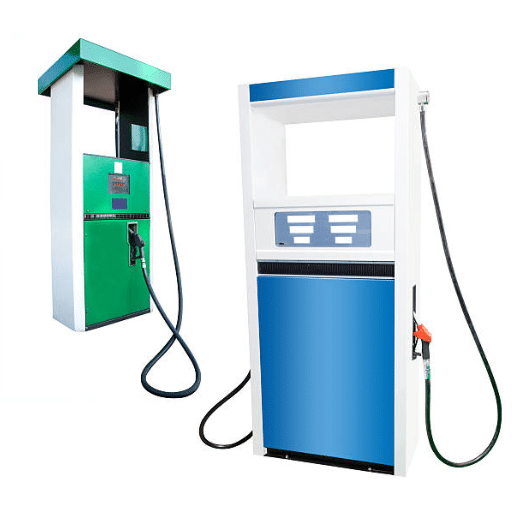
Fuel dispensers can be broadly classified by their functionality, types of fuels dispensed, and technological features. Understanding these categories is essential for making informed investment decisions.
Single-Product Dispensers
Ideal for: Smaller, low-traffic fuel stations
Key Benefits:
- Cost-effective initial investment
- Simple operation and maintenance
- Perfect for specialized fuel types
- Minimal training requirements
Best Use Case: Businesses focusing on one or two specific fuel varieties
Multi-Product Dispensers
Ideal for: Busy fuel stations with diverse needs
Key Benefits:
- Maximum space utilization
- Enhanced operational efficiency
- Versatile fuel options
- Streamlined customer service
Best Use Case: Stations serving gasoline, diesel, and biodiesel
High-Flow Dispensers
Ideal for: Commercial and industrial settings
Key Benefits:
- Rapid fueling capabilities
- Time-critical operation support
- Heavy-duty vehicle compatibility
- High-volume efficiency
Best Use Case: Truck stops and fleet operations
Commercial Fleet Dispensers
Ideal for: Large commercial applications
Key Benefits:
- Fleet card integration
- Advanced fuel tracking systems
- Industry-specific customization
- Comprehensive reporting capabilities
Best Use Case: Corporate fleet management operations
Smart/IoT-Enabled Dispensers
Ideal for: Technology-forward operations
Key Benefits:
- Predictive maintenance capabilities
- Enhanced monitoring systems
- Superior customer experience
- Mobile app connectivity
Best Use Case: Modern stations prioritizing innovation
The Critical Importance of Quality in Fuel Dispensers
Quality Equals Profitability
Premium fuel dispensers deliver higher safety levels, enhanced efficiency, and superior reliability. Quality dispensers are constructed to withstand aggressive usage and weather conditions, minimizing leakage and malfunction risks while maximizing operational uptime.
Key quality advantages include:
- Enhanced Safety Features: Automatic shut-off valves prevent spills and accidents that could harm customers, employees, and the environment
- Precision Metering Systems: Ensure customers receive exactly the amount of fuel they pay for, building trust and ensuring compliance
- Advanced Monitoring Capabilities: Real-time systems identify maintenance issues before they escalate into costly problems
- Environmental Compliance: Meet fuel-quality specifications that reduce pollutant emissions and conserve energy resources
- Long-term Return on Investment: Quality equipment reduces maintenance needs and creates strong customer loyalty
Critical Insight: Studies demonstrate that calibration inefficiencies significantly impact both operator and customer revenues, making precise metering essential for maintaining profitability and regulatory compliance.
Industry Leaders: Gilbarco and the Encore Family
Gilbarco Veeder-Root stands as the undisputed leader in fuel dispensing technologies, maintaining its position as an innovative partner driving solutions that prioritize efficiency, reliability, and ease of use. The company has built a strong reputation for developing modern fueling systems including high-speed dispensers, integrated payment systems, and advanced POS solutions.
The Encore Family: Engineering Excellence
The Encore family of dispensers exemplifies Gilbarco’s dedication to excellence through innovative features designed for the modern fuel retail environment:
- Enhanced User Interface: Intuitive design with modular architecture for easy customization
- Contactless Payment Compatibility: Future-proof payment processing capabilities
- Versatile Fuel Support: Traditional fuels, biofuels, and electric vehicle charging solutions
- Highly Configurable Design: Adaptable to diverse business requirements
- Fleet Management Integration: Advanced data insights for operational optimization
Industry Recognition: The Encore 700 series is consistently recognized as a top choice for fleet management, fast fueling, and data-driven insights that streamline operations across diverse fuel retail environments.
Encore 700 Series: Advanced Features That Drive Results
The Encore 700 delivers sophisticated performance across multiple operational dimensions, representing the pinnacle of fuel dispensing technology:
| Feature Category | Specific Capabilities | Business Impact |
|---|---|---|
| Advanced FLEXPAY Integration | EMV compliance, NFC, mobile payment compatibility | Secure transactions, enhanced customer convenience, reduced processing time |
| Customer Interface Technology | High-resolution multimedia screens, interactive displays | Intuitive user engagement, promotional opportunities, enhanced communication |
| Durability Engineering | Corrosion-resistant materials, weather-resistant construction | Reduced maintenance costs, extended service life, reliable performance |
| Fuel Dispensing Efficiency | Enhanced precision metering, improved flow control | Accurate delivery, waste reduction, customer confidence |
| Data Analytics Platform | Real-time insights, fleet management integration | Operational optimization, informed business decisions, streamlined management |
| Environmental Compliance | Green energy certification, renewable fuel support | Regulatory compliance, sustainability goals, future-proofing |
Strategic Benefits of Modern Fuel Pump Investment
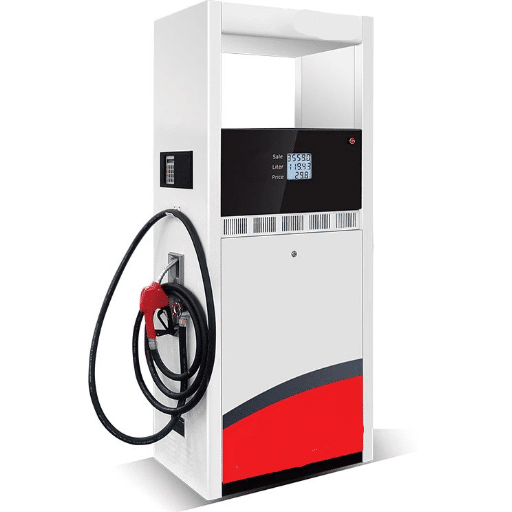
Modern fuel pumps offer comprehensive advantages that extend far beyond basic fuel dispensing, providing measurable returns on investment through multiple operational improvements.
Enhanced Efficiency and Speed
Gallons Per Minute Delivery Rate
Reduction in Customer Wait Times
Cutting-edge technology enables modern fuel pumps to deliver fuel at approximately 10 gallons per minute, significantly reducing customer waiting times while increasing station throughput for improved operational efficiency.
Energy Efficiency and Environmental Impact
- Alternative Fuel Compatibility: Support for biodiesel and E-85 ethanol mixtures
- Energy-Saving Design: Low power consumption reduces operational costs
- Solar Integration Options: Some models utilize renewable solar energy
- Carbon Footprint Reduction: Environmental responsibility meets cost savings
Integrated Smart Technology
- Digital Display Systems: Clear, informative customer interfaces
- Wireless Connectivity: Remote monitoring and management capabilities
- Real-time Inventory Tracking: Prevent stock shortages through automated monitoring
- Advanced Payment Processing: Multiple secure options including contactless and mobile payments
Durability and Reliability
- Weather-Resistant Construction: Built to withstand adverse environmental conditions
- Corrosion-Resistant Materials: Extended operational life with minimal maintenance
- Leak Detection Systems: Proactive monitoring for enhanced reliability
- Minimal Maintenance Requirements: Reduced operational disruptions
Supplier Selection: Strategic Decision Framework
Choosing the right fuel dispenser supplier requires careful evaluation across multiple critical dimensions to ensure long-term operational success.
Essential Selection Criteria
1. Compliance with Industry Standards and Certifications
- ISO Certifications: Quality and safety assurance
- Underwriters Laboratories (UL) Approval: Product safety and performance validation
- EPA Compliance: Environmental regulations for vapor recovery systems
- ATEX Certification: International safety standards compliance
2. Advanced Technology Integration
- Automated Payment Systems: Streamlined transaction processing
- Cloud-Based Monitoring Tools: Real-time operational insights
- IoT Sensor Integration: Predictive maintenance capabilities
- Digital Payment Processing: Modern customer convenience features
3. Energy Efficiency and Sustainability Considerations
- Low-Power Components: Reduced operational energy costs
- Alternative Fuel Compatibility: Biodiesel and ethanol blend support
- Environmental Impact Reduction: Sustainable operational practices
- Green Technology Integration: Future-proof environmental compliance
4. Comprehensive After-Sales Support
- Routine Maintenance Services: Preventive care programs
- Extended Warranty Coverage: Long-term investment protection
- Remote Diagnostic Capabilities: Proactive issue identification and resolution
- 24/7 Technical Support: Immediate assistance when needed
5. Track Record and Industry Reputation
- Consistent Performance History: Proven reliability in diverse conditions
- Positive Customer Feedback: Verified satisfaction ratings
- Innovation Leadership: Continuous product development and improvement
- Industry Recognition: Awards and certifications from respected organizations
Selection Insight: Research indicates that companies with high customer satisfaction ratings consistently outperform competitors in product innovation and service quality delivery, making reputation a critical selection factor.
Investment Analysis: Understanding Costs and Value
Investment Range: $10,000 – $25,000 per unit
Based on features, brand reputation, and technology integration
Comprehensive Cost Structure Analysis
| Cost Component | Typical Investment | Strategic Considerations |
|---|---|---|
| Base Equipment Price | $8,000 – $15,000 | Core functionality and essential features |
| Installation Services | $1,500 – $3,000 | Professional setup and system integration |
| Advanced Features | $2,000 – $5,000 | Digital displays, enhanced payment systems |
| Maintenance Agreements | $500 – $1,200/year | Regular service and warranty coverage |
| Training & Support | $300 – $800 | Staff education and technical assistance |
Long-term Value Optimization Strategies
- Energy Efficiency ROI: Higher initial costs offset by utility savings over operational lifetime
- Maintenance Cost Reduction: Quality equipment prevents expensive emergency repairs
- Volume Purchase Benefits: Bulk buying opportunities reduce per-unit investment
- Strategic Timing: Trade event specials can significantly lower upfront costs
- Financing Options: Leasing and financing programs spread investment over time
ROI Calculation: Comprehensive warranty coverage (5+ years) may appear costlier initially but can save thousands in repairs and replacements, making it a strategic long-term investment.
Essential Gas Station Equipment Ecosystem
Successful fuel stations require integrated equipment systems working in harmony to deliver safe, efficient, and profitable operations:
| Equipment Category | Primary Function | Key Technologies | Operational Benefits |
|---|---|---|---|
| Fuel Dispensers | Precise fuel delivery and transaction processing | Electronic payment, touchscreen interfaces, mobile compatibility | Customer satisfaction, operational efficiency, revenue optimization |
| Underground Storage Tanks (USTs) | Safe fuel storage and environmental protection | Double-walled fiberglass, leak detection sensors, monitoring systems | Environmental compliance, regulatory adherence, operational transparency |
| Piping Systems | Reliable fuel transportation infrastructure | Corrosion-resistant materials, pressure monitoring, leak detection | System reliability, safety assurance, maintenance reduction |
| Fuel Management Systems (FMS) | Inventory control and operational monitoring | IoT integration, theft detection, data analytics, reporting | Loss prevention, efficiency optimization, compliance management |
| LED Canopy Lighting | Site illumination and safety enhancement | Smart controls, energy efficiency, automated adjustment | Safety improvement, cost reduction, customer attraction |
| EV Charging Stations | Electric vehicle support and market expansion | Rapid charging (20-60 minutes), smart connectivity | Revenue diversification, future-proofing, market positioning |
| Point-of-Sale (POS) Systems | Transaction processing and business intelligence | Cloud-based platforms, inventory management, customer analytics | Operational insights, efficiency gains, customer service enhancement |
| Air and Water Systems | Ancillary customer services | Pressure gauges, automatic controls, precision delivery | Customer convenience, additional revenue, service differentiation |
Systems Integration: Modern gas stations operate as integrated ecosystems where each component enhances overall performance. From durable storage solutions to advanced digital technologies, every element contributes to operational excellence and customer satisfaction.
Technology Integration in Fuel Dispensing
Advanced technology integration has revolutionized fuel dispensing operations, delivering unprecedented levels of efficiency, precision, and customer satisfaction. Modern dispensers represent sophisticated platforms that extend far beyond simple fuel delivery.
Core Technology Features
- Digital Display Interfaces: Allow users to view fuel levels, transaction progress, and maintenance notifications
- Contactless Payment Methods: Boost customer convenience while streamlining the fueling process
- Mobile App Connectivity: Enable remote monitoring and customer engagement
- IoT Connectivity: Facilitate predictive maintenance and operational optimization
- AI-Based Systems: Limit human error while maintaining safety through continuous monitoring
Sustainability Alignment
These technological advancements align perfectly with sustainability goals by reducing fuel waste through early leak detection, optimizing inventory management, and enabling precise fuel dispensing that minimizes environmental impact.
Future Trends in Fuel Station Equipment
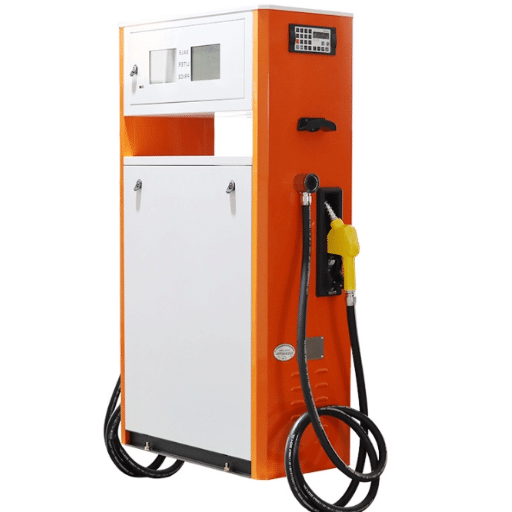
The fuel station industry is experiencing rapid transformation driven by technological innovation and evolving consumer preferences. Understanding these trends is essential for making future-proof investment decisions.
Electric Vehicle Infrastructure Expansion
- Fast Charger Installation: Reducing charging times and enhancing customer convenience
- Integrated Service Models: Combining traditional fuel services with EV charging capabilities
- Grid Integration: Smart charging systems that optimize energy usage and costs
Alternative Fuel Solutions
- Hydrogen Refueling Stations: Supporting the growing hydrogen-powered vehicle market
- Biofuel Expansion: Enhanced support for biodiesel and ethanol blends
- Carbon Emission Reduction: Focus on cleaner fuel alternatives and delivery methods
Digital Transformation Initiatives
- Advanced Automated Payment Systems: Seamless, secure transaction processing
- Mobile Applications: Enhanced customer engagement and loyalty programs
- AI-Based Operational Solutions: Predictive analytics for maintenance and inventory management
- Big Data Analytics: Comprehensive insights for business optimization
Sustainability Focus Areas
- Green Station Layouts: Eco-friendly design and construction practices
- Solar Panel Integration: Renewable energy generation for operational power
- Energy Storage Solutions: Battery systems for grid independence and efficiency
- Recyclable Materials: Sustainable construction and equipment materials
Future Outlook: These trends offer a glimpse into how fuel station equipment is adapting to a changing world, with successful operators positioning themselves for long-term competitiveness through strategic technology adoption.
Maximizing ROI: Smart Operational Strategies
To maximize savings and operational efficiency from fuel dispensers, implementing comprehensive management strategies is essential for long-term success.
Cost vs. Benefits Analysis Framework
| Investment Factor | Short-term Impact | Long-term Benefits | ROI Timeline |
|---|---|---|---|
| Modern Equipment Investment | Higher upfront costs | Better accuracy, lower maintenance costs | 2-3 years |
| Energy-Efficient Systems | Technology premium | Reduced operational energy expenses | 1-2 years |
| Quality Equipment Selection | Brand premium pricing | Reduced repair and replacement costs | 3-5 years |
| Advanced Monitoring | System implementation costs | Prevention of fuel loss and theft | 6-12 months |
🎯 Expert Tips for Efficient Fuel Management
- Implement Advanced Monitoring Systems:
- Deploy fuel tracking software to monitor consumption patterns
- Identify inefficiencies and potential leakages promptly
- Use real-time data for informed decision-making
- Generate automated reports for trend analysis
- Prioritize Preventive Maintenance:
- Schedule regular equipment inspections and servicing
- Maintain clean fuel filters and properly calibrated systems
- Keep engines and vehicles operating at peak efficiency
- Address minor issues before they become major problems
- Optimize Route Planning and Operations:
- Utilize GPS and route optimization tools effectively
- Implement efficient logistics to minimize waste
- Coordinate maintenance schedules to reduce downtime
- Plan deliveries during optimal traffic conditions
- Invest in Comprehensive Staff Training:
- Educate operators on fuel conservation practices
- Teach efficient system operation techniques
- Promote safety protocols and emergency procedures
- Encourage behavioral changes that result in fuel savings
- Embrace Advanced Technology Solutions:
- Adopt fuel management systems and telematics
- Upgrade to energy-efficient, smart equipment
- Leverage predictive analytics for proactive management
- Integrate IoT sensors for comprehensive monitoring
of Consumers Cite Reliability as Key Loyalty Factor
Equipment Downtime Reduction with IoT Sensors
Annual Savings from Preventive Maintenance
Ensuring Service Excellence: Building Customer Confidence
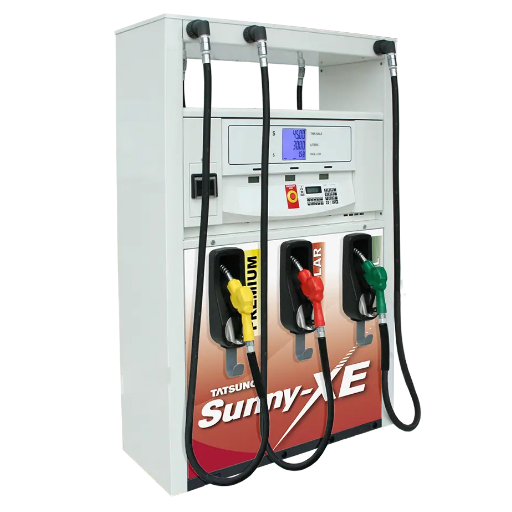
Ensuring dependable service requires a strategic combination of advanced systems, experienced personnel, and customer-oriented approaches that build lasting relationships and operational reliability.
Key Reliability Factors
- Predictive Analytics Implementation: IoT-connected sensors measure operational parameters and generate early warning alerts
- Comprehensive Staff Development: Training programs ensure consistent service standards across all operational touchpoints
- Quality Assurance Systems: Systematic maintenance and monitoring minimize customer service disruptions
- Advanced Technology Integration: Real-time monitoring systems prevent service interruptions before they occur
Reliability Impact: Industry statistics demonstrate that 86% of consumers cite reliability as a key factor in their business loyalty, emphasizing the critical importance of consistent service quality for long-term success and customer retention.
Complete Fueling Station Equipment Overview
A comprehensive fueling station requires multiple integrated components working together to provide safe, efficient fuel supply while meeting all regulatory requirements and customer expectations.
Essential system components include:
- Fuel Dispensers: Precise and efficient fuel delivery with advanced metering capabilities
- Underground Storage Tanks: Safe fuel storage with environmental protection measures
- Piping Systems: Reliable fuel transportation from storage to dispensing points
- Fuel Management Systems: Comprehensive monitoring, tracking, and compliance management
These components work together to create a streamlined system that serves customer needs safely and reliably while ensuring regulatory compliance and operational efficiency.
🚀 Your Path to Fuel Station Excellence
Investing in modern fuel dispensers represents far more than equipment acquisition—it’s a strategic decision that positions your business for sustained success in an evolving marketplace. With advanced features, proven sustainability benefits, and demonstrable long-term value, quality fuel dispensers are essential for any operation committed to excellence.
The measures outlined in this guide help both businesses and individuals:
- Increase operational efficiency and reduce expenses
- Take meaningful steps toward sustainability goals
- Build lasting customer relationships through reliable service
- Position for competitive advantage in the evolving energy market
Ready to Transform Your Operation? 🌟
Take Action Today: Any strategic investment in fuel management and modern dispensing technology will deliver evident returns in both the short and long term. Evaluate your specific operational needs, research qualified suppliers, and make informed decisions that drive sustainable business growth.
Contact qualified suppliers today to explore how modern fuel dispensers can enhance your operational efficiency, customer satisfaction, and long-term profitability. The right investment decision today secures your competitive position for years to come.

